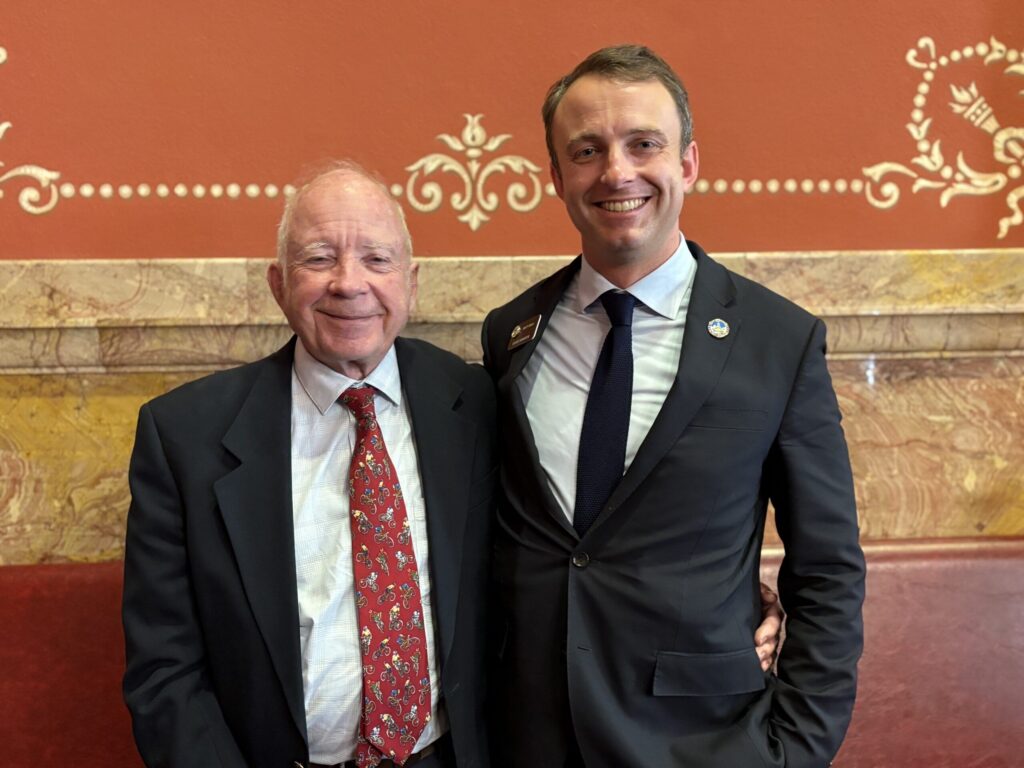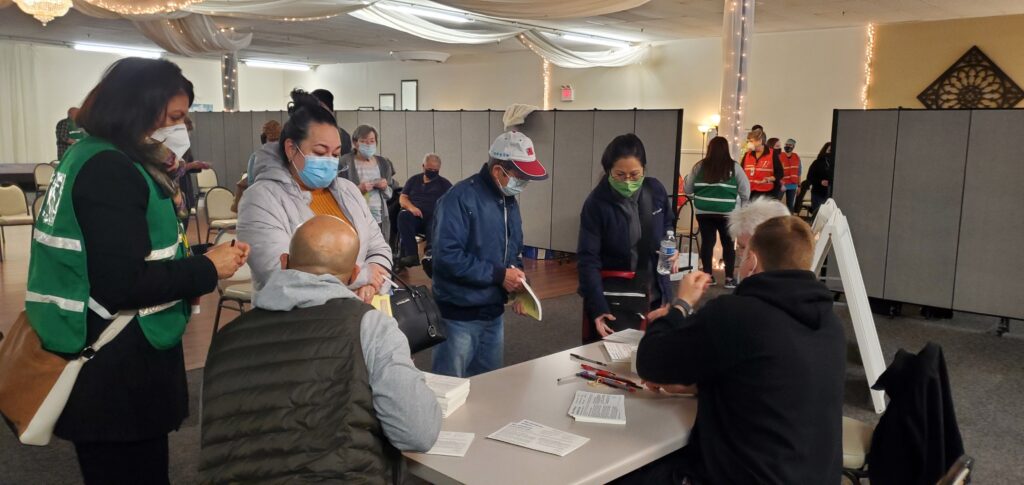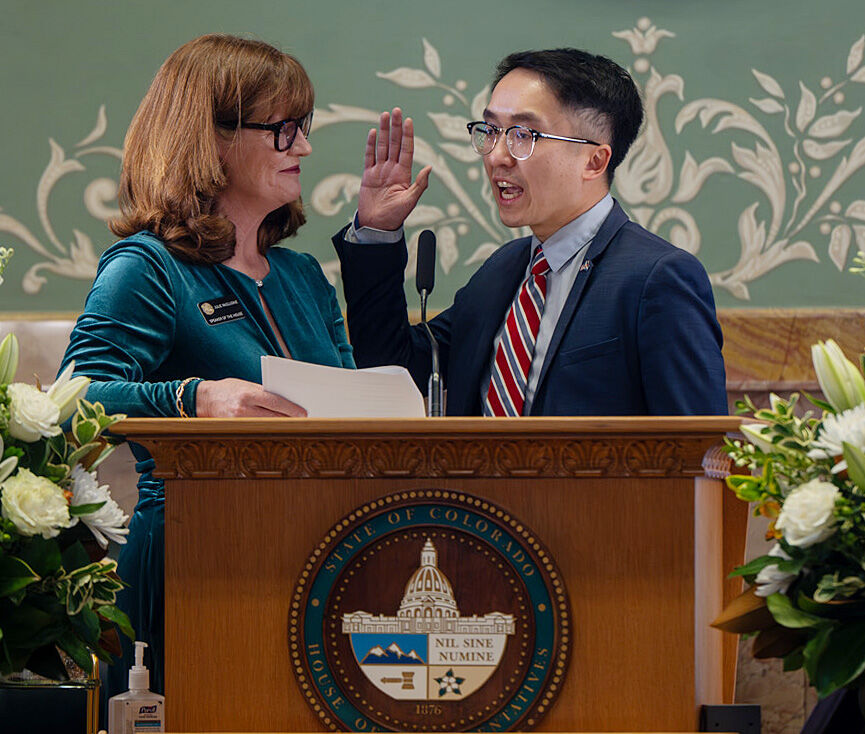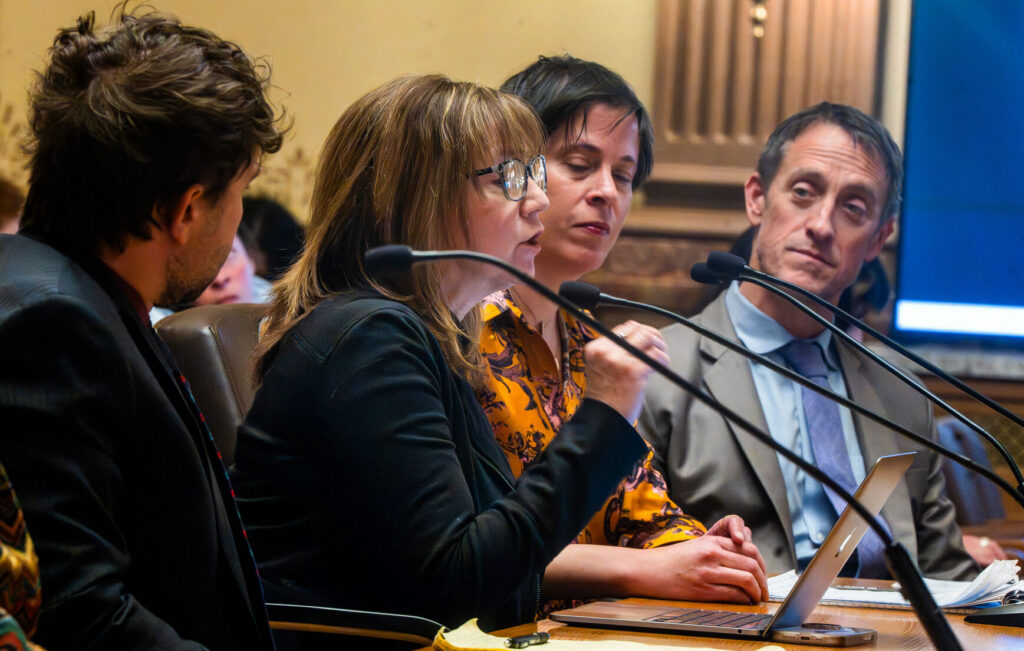Moderate Democrats, GOP reach deal to end shutdown
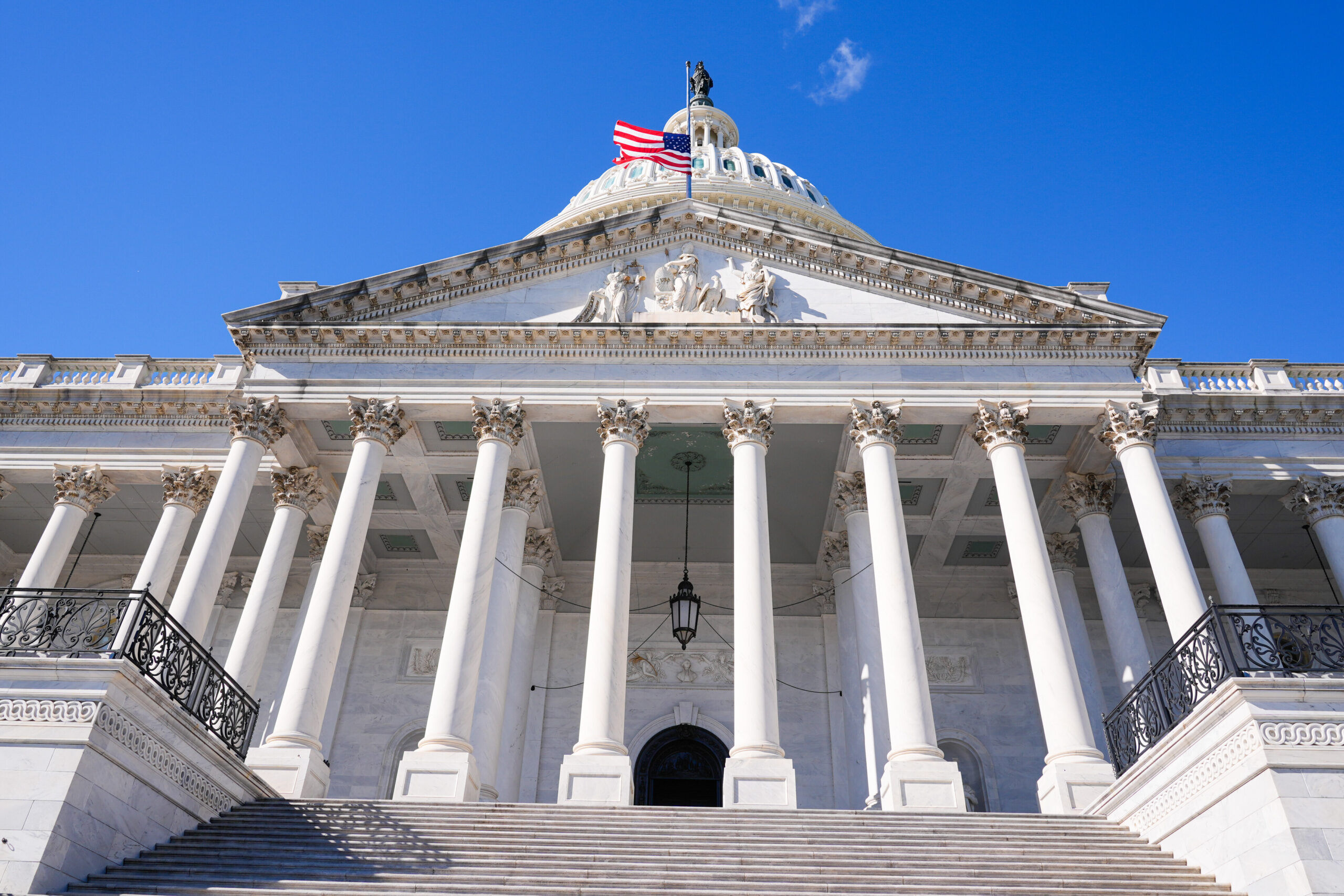
WASHINGTON — The U.S. Senate took the first step to end the government shutdown on Sunday after a group of moderate Democrats agreed to proceed without a guaranteed extension of expanded health care subsidies, breaking the six-week stalemate and paving the way to fund operations through late January.
In a test vote that is the first in a series of required procedural maneuvers, the Senate voted, 60-40, to move toward passing compromise legislation to fund the government and hold a later vote on extending the enhanced Affordable Care Act tax credits set to expire on Jan. 1.
The deal’s final passage could be several days away if Democrats objected and delayed the process.
The agreement does not guarantee the enhanced Affordable Care Act subsidies would be extended, as Democrats have demanded for almost six weeks. Senate Democratic leader Chuck Schumer of New York voted against moving ahead with the package, along with all but eight of his Democratic colleagues.
A group of three former governors — New Hampshire Sen. Jeanne Shaheen, New Hampshire Sen. Maggie Hassan and Independent Sen. Angus King of Maine — broke the six-week stalemate on Sunday, when they agreed to vote to advance three bipartisan annual spending bills and extend the rest of government funding until late January in exchange for a mid-December vote on extending the health care tax credits. The agreement also includes a reversal of the mass firings of federal workers by the Trump administration since the shutdown began on Oct. 1 and it would ensure that federal workers receive back pay.
Senate Majority Leader John Thune quickly endorsed the deal and called the immediate vote to begin the process of approving it, as the shutdown continued to disrupt flights nationwide, threaten food assistance for millions of Americans and leave federal workers without pay.
“The time to act is now,” Thune said.
Returning to the White House on Sunday evening after attending a football game, President Donald Trump did not immediately say whether he endorsed the deal. But, he said, “itlooks like we’re getting close to the shutdown ending.”
FIVE DEMOCRATS SWITCH VOTES
In addition to Shaheen, King and Hassan, Democratic Sen. Tim Kaine of Virginia, home to tens of thousands of federal workers, also voted in favor of moving forward on the agreement. Illinois Sen. Dick Durbin, the No. 2 Democrat, Pennsylvania Sen. John Fetterman and Nevada Sens. Catherine Cortez Masto and Jacky Rosen also voted yes.
The moderates had expected a larger number of Democrats to vote with them, as around 10-12 Democratic senators had been part of the negotiations. But, in the end, only five Democrats switched their votes — the exact number that Republicans needed. King, Cortez Masto and Fetterman had already been voting to open the government since Oct. 1.
The vote was temporarily delayed on Sunday evening, as Republican Sens. Mike Lee of Utah, Rick Scott of Florida and Ron Johnson of Wisconsin withheld their votes and huddled with Thune at the back of the chamber. They eventually voted yes after speaking to Trump, Lee said.
Another Republican, Sen John Cornyn of Texas, had to fly back from Texas to deliver the crucial 60th vote.
SCHUMER VOTES NO
After Democrats met for over two hours to discuss the proposal, Schumer said he could not “in good faith” support it.
Schumer, who received blowback from his party in March when he voted to keep the government open, said that Democrats have now “sounded the alarm” on health care.
“We will not give up the fight,” he said.
Independent Sen. Bernie Sanders of Vermont, who caucuses with the Democrats, said that giving up the fight is a “horrific mistake.”
Sen. Chris Murphy, D-Conn., agreed, saying that people in last week’s elections voted overwhelmingly Democratic “to urge Democrats to hold firm.”
A BIPARTISAN DEAL
Democrats had voted 14 times not to reopen the government, as they demanded the extension of enhanced tax credits that make coverage more affordable for health plans offered under the Affordable Care Act.
In response to the COVID-19 pandemic, Congress had adopted the American Rescue Plan Act of 2021, which, among other provisions, temporarily expanded eligibility for the premium tax credits for tax years 2021 and 2022.
Notably, the law eliminated the income limit of 400% of the federal poverty level, thereby allowing more Americans to qualify, and provided larger subsidies compared to the original Affordable Care Act. The Biden administration and Congress then extended these enhanced tax credits in the 2022 Budget Reconciliation Law for another three years and established the sunset date of Jan. 1, 2026.
Democrats have pushed for extending the enhanced subsidies, while Republicans said they are willing to negotiate but after reopening the federal government.
Sunday’s agreement includes bipartisan bills worked out by the Senate Appropriations Committee to fund parts of government — food aid, veterans programs and the legislative branch, among other things. All other funding would be extended until the end of January, giving lawmakers more than two months to finish additional spending bills.
The deal would reinstate federal workers who had received reduction in force, or layoff, notices and reimburse states that spent their own funds to keep federal programs running during the shutdown. Colorado, for example, secured a deal with the Trump administration to keep two visitor centers at the Rocky Mountain National Park open at a cost of $3,200 per day.
The Senate deal would also protect against future reductions in force through January and guarantee federal workers would be paid once the shutdown is over.
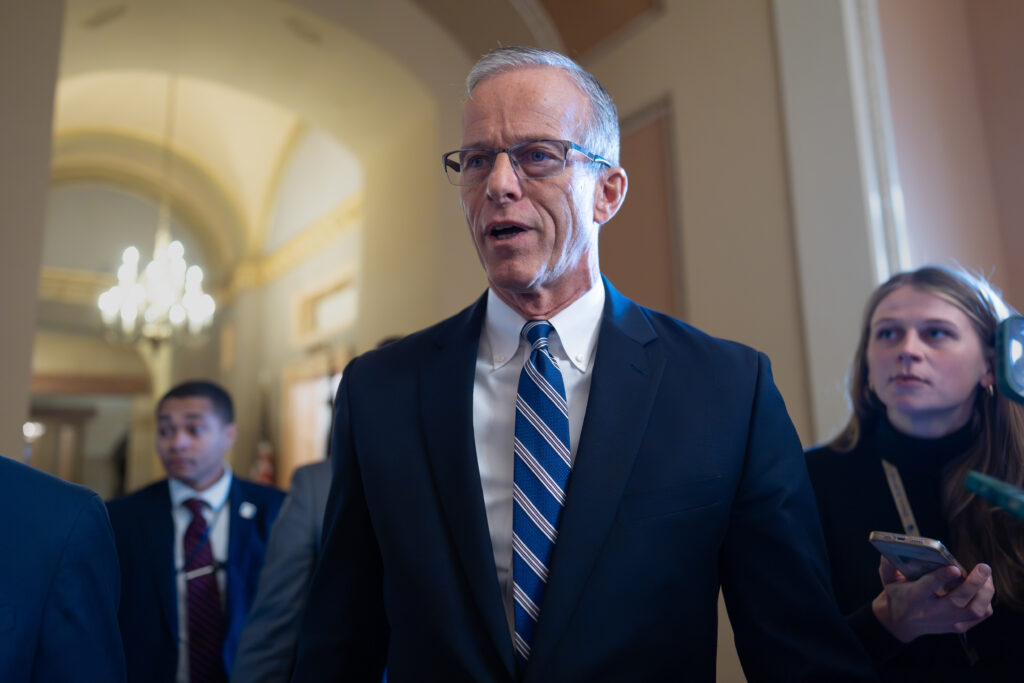
HEALTH CARE DEBATE AHEAD
It’s unclear whether the two parties would be able to find any common ground on the health care subsidies before a promised December vote in the Senate.
House Speaker Mike Johnson, R-La., has said he will not commit to bring it up in his chamber.
Some Republicans have said they are open to extending the COVID-19-era enhanced tax credits, as premiums could skyrocket for millions of people, but they also want new limits on who can receive the subsidies and argue that the tax dollars for the plans should be routed through individuals.
Other Republicans, including Trump, have used the debate to renew their years-long criticism of the law and called for it to be scrapped or overhauled.
“THE WORST HEALTHCARE FOR THE HIGHEST PRICE,” Trump said of the Affordable Care Act in a post Sunday.
SHUTDOWN EFFECTS
Meanwhile, the consequences of the shutdown have been compounding.
U.S. airlines canceled more than 2,000 flights on Sunday for the first time since the shutdown began, and there were more than 7,000 flight delays, according to FlightAware, a website that tracks air travel disruptions.
Treasury Secretary Sean Duffy said on CNN’s “State of the Union” that air travel ahead of the Thanksgiving holiday will be “reduced to a trickle” if the government doesn’t reopen.
At the same time, food aid was delayed for tens of millions of people as Supplemental Nutrition Assistance Program benefits were caught up in legal battles related to the shutdown.
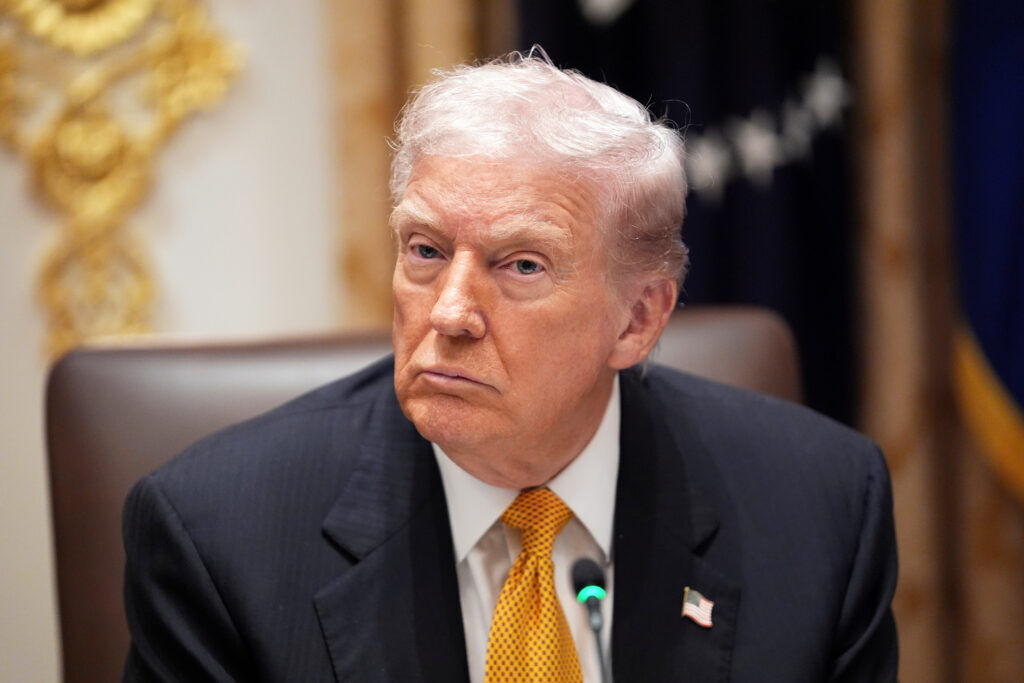
The Associated Press and The Denver Gazette contributed to this article.


